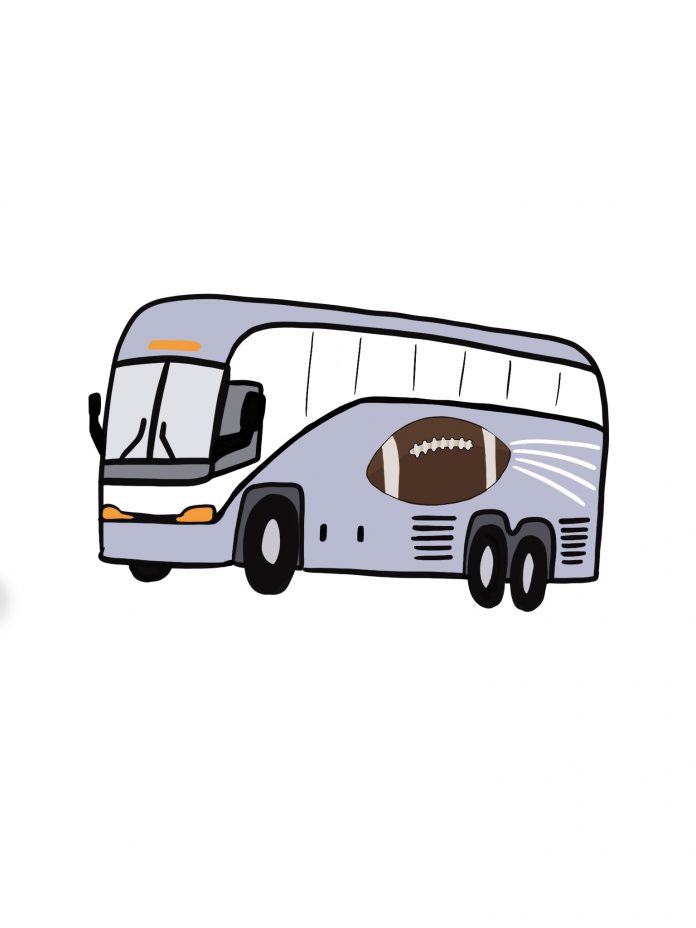Damien Kanner-Bitetti ’25 is a prospective English major and American Studies minor from Arlington, Va. In addition to The Flat Hat, he is a member of Club B Soccer, a DJ for WCWM 90.9 and an executive member of Students of Hip Hop Legacy. Email him at dskannerbitett@wm.edu.
The views expressed in the article are the author’s own.
Last week, the Oakland Athletics announced that it had formally begun the process of relocating to Las Vegas and will end their history in California. This announcement makes them the third team in the last ten years to leave Oakland for greener pastures and the fifth major American sports team to move in the same time period. To some, this is a worrying trend — if established teams like the Athletics can relocate with impunity, then no team is safe. Comparatively speaking, however, this is by far the most stable era for American sports franchises with far fewer teams having moved in recent years than in past decades. For this reason (among others), I’m not personally worried about a surge in relocations. I do think, however, that the Athletics’ move to Las Vegas is symptomatic of deeper issues in American sports culture.
The primary reason for the Athletics’ departure is not up for debate: the team’s owner, John Fisher, has neglected both the on-field and off-field aspects of the franchise, trading the team’s best players, letting their stadium decay and generally cutting costs wherever possible. This has led to the Athletics’ current situation: 17 games under .500 and playing in a possum-infested stadium. The team’s fanbase is, understandably, fed up to the point of boycotting games and staging widespread protests in the stands. But their complaints have largely fallen on deaf ears — Fisher has remained dedicated to squeezing every last dollar out of the team. This cycle of underinvestment, decay and betrayal has thus been decades in the making and is now reaching its peak with the proposed move to Las Vegas.
This begs the question: why is this cycle allowed to happen? Why can the actions of one man lead to the death of such a cherished cultural establishment? To me, the answer lies in the structure of American sports teams and leagues. These entities operate the same as any other business (often with far fewer regulations and much greater power) and are thus seen as opportunities for investment by their billionaire owners. Attitudes like Fisher’s are far from exceptional among this group. While he may have taken cost-cutting further than anyone else, the practice is widespread, and it affects more than just player spending. Just look at the Pittsburgh Pirates’ stadium employees, who recently announced their intention to strike over low wages.
Underinvestment also affects fans, who deserve a competitive team and a positive pillar of their community. Unfortunately, this isn’t a guarantee — in Oakland or anywhere else — due to the American model of sports leagues being not only susceptible to owner abuse, but also designed to facilitate it. The idea that a community’s team can be private property of a single person has had disastrous effects on countless teams in the past, has created the Athletics’ current problems, and will continue to cause harm in the future.
So if the structure of American professional sports is flawed, where can we look for answers? In my opinion, the phrase itself holds the answers — look at non-American or non-professional sports. Fans of European teams hold much greater sway over their team’s decisions financially and politically as much as culturally. Supporters’ groups and community trusts allow for tangible fan power, with owners traditionally taking more of a custodial role. Another alternative example is right here on campus: college sports teams in the U.S. are held accountable by their fan bases through things like alumni funding. A third, more radical solution practiced especially in Germany is complete or partial fan ownership; in this method, the public buys shares and elects a board to make decisions. Obviously, these solutions aren’t perfect and would be hard to introduce to professional teams. However, one thing is clear: the structure of American sports leaves fans vulnerable and must be changed for the good of communities across the country.






























[…] Source […]